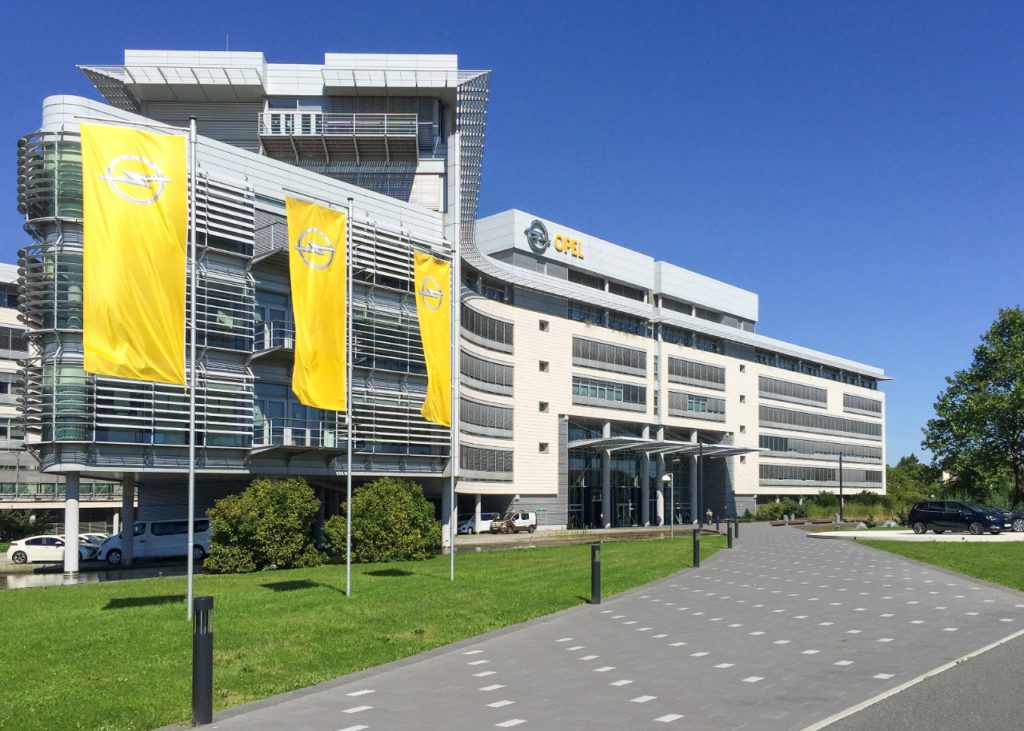Costings expert takes Opel helm as PSA deal nears, but staff losses deal EV blow
13 June 2017

13 June 2017
With the resignation of Opel CEO Karl-Thomas Neumann on Monday, and now electrification director Dr Ralf Hannappel, Opel has taken a significant hit to its electromobility expertise as PSA’s purchase of the company nears completion. Neumann’s value is clearly shown by VW Group already reportedly looking to re-hire him. He was previously responsible for electromobility at the Wolfburg-based group, but clashed with former Dieselgate-disgraced CEO Martin Winterkorn’s closed-minded attitude to alternative powertrains.
Nevertheless, new Opel CEO Lohscheller is a safe pair of hands, with the director of the Center for Automotive Research Ferdinand Dudenhoeffler telling the DPA: ′He is the guy who understands Opel’s costs the best,’ with deep knowledge of the company.
Analysts view Lohscheller’s appointment as a positive move. Widely regarded as adept with numbers, he has been Opel’s chief financial officer since 2012, a period which has seen Opel’s losses narrow. Before then he held a similar position at Volkswagen of America, and began his automotive career in Daimler’s logistics department.
This latter area of expertise will also serve him well under PSA CEO Carlos Tavares, who is looking to cut costs at both PSA and Opel through synergies in the areas of purchasing and logistics. Tavares has shown strong support for Lohscheller’s appointment, stating: ′My personal interactions with Michael have been extremely positive, where he has shown a great deal of insight of Opel and Vauxhall, as well as a solid understanding of the international marketplace.’
He added that Lohscheller ′will be surrounded by Opel’s best talents to bring Opel / Vauxhall to new horizons for the benefit of its employees, customers and partners.’
Over time, PSA plans to export Opel cars overseas to compete in markets where its French models are not popular, Tavares told the Financial Times earlier this year. The PSA Group remains heavily dependent on the European car market, with very weak sales in China. Prior to PSA’s bid to take over Opel, former CEO Neumann has been looking to turn Opel into an electric-only brand to turn around the company; analysts had voiced scepticism about whether Opel could survive on just electric vehicle sales in the medium term, and this strategy now looks to have been scrapped with Lohscheller’s appointment.
Lohscheller’s overall task is for Opel (including British brand Vauxhall) to achieve its first profit in almost two decades by 2020 at the latest, with an operating profit of just 2% in that year. The second key milestone target is to achieve a margin of only 6% by 2026; these targets clearly show the daunting task Lohscheller has at turning the division around.
The division was close to profitability last year, but failed in part due to the British pound’s collapse following the UK’s vote to leave the European Union, as well as a weak Turkish lira. The chances of the carmaker having significant profit margins in the near future look remote, even if it meets its targets. Furthermore, with the UK remaining one of Opel’s most successful markets through Vauxhall, the company remains highly vulnerable to the Brexit negotiations, in theory due to start next week, with UK politics currently looking very unstable.
Dudenhoeffler expects Lohscheller to achieve these KPIs through ′hard-nosed restructuring’, including job losses after current employment guarantees expire next year. This could lead him towards fierce confrontations with Germany’s powerful unions – once described as the bane of Opel’s existence – as well as threatening Vauxhall’s operations in the UK.
Opel’s sale from General Motors to PSA could be completed as early as 31 July, which will see General Motors, America’s largest carmaker by sales, exit the European market. This could help relieve some competitive pressure in the European volume segment temporarily, although Geely’s launch of its Lynk brand in Europe is on the horizon.
Photograph courtesy of Opel